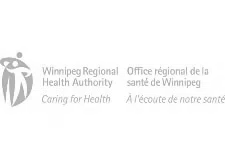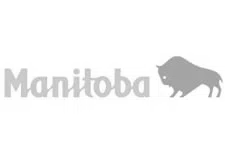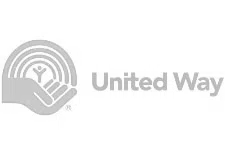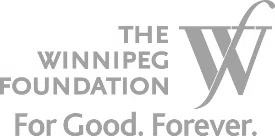Our History in the Community
The vision and passion of two individuals have had a major role in shaping Main Street Project: John Rodgers and Clay Lewis. To this day, their commitment to community inspires our team and impacts those who use our services.
Our Timeline
1972
Main Street Project’s Inception. John Rodgers and Clay Lewis spearheaded MSP’s foundation and growth.
1977-78
Main Street Project’s shelter in the mid-70s holding over 100 individuals per night.
Detox (now named Withdrawal Management Services) at 55 Lydia Street was under pressure to take corrections clients, intox clients because of overcrowding at shelter.
John Rodgers (the Executive Director at MSP) with the Board asked the City of Winnipeg for solutions for folks at MSP.
1980-81
MSP Detox moving from 55 Lydia Street to Galt Avenue.
At the time, Addiction Foundation of Manitoba (AFM) owned the Galt building.
Drop-in shelter numbers began rising steadily and MSP’s board began negotiating for increased funding from the City of Winnipeg and the province.
1981-82
MSP and the community consulted with AFM and other organizations about responding to essential needs in Winnipeg.
MSP’s detox completed its move to the Galt Avenue.
Crisis centre’s move is contemplated as the building was slated for demolition.
MSP and staff agreed on a collective agreement.
The number of individuals receiving shelter increased by 32% year over year (1375).
1982-83
MSP purchases the 75 Martha Street building and renovated the new home for MSP.
AFM, The City of Winnipeg, Core Area Renewal Program, Core Area Initiatives and United Way begin planning with MSP for the move.
This new building included a facility for IPDA, case management and assessment services, detox (moved from 105 Galt) and a short-term co-ed hostel.
1983-84
MSP officially open 75 Martha Street building.
1984-85
MSP clarified and simplified a purpose and objectives for all their programs.
Its Continuing Care Unit was established which provided counselors the ability to help community members (previously-called clients) and provide group sessions in detox.
There was a 133% increase year-over-year for MSP’s services in the community. 44% increase in the number of individuals served – the increase was unexpected.
1985-86
MSP provided more jobs and careers, along with training.
Modest increase in numbers across all programs.
1986-87
MSP’s primary funder transitioned from AFM to the Ministry of Community Services & Corrections.
The organization implements practical placements for 24 students – Inner City Nursing, Red River Social Service and Development Course, New Careers, Winnipeg Education Centre and others
1987-88
MSP’s total revenue topped out at $895,710.
Its program admission and client numbers remained stable from the prior year.
1988-89
Shelter sees drastic increase in admission (from approximately 15,780 to 20,256) which questioned the size of the current building.
There were concerns about IPDA’s funding and its inadequate facility – MSP began discussions with the Winnipeg Police Service (WPS).
1989-90
MSP began assessing concerns about the amount of recidivism among clients; began discussion to improve its Continuing Care services which included implementing a new Victims’ Assistance Program.
1990-91
The total number of client and accumulated program admissions decrease by 6% with a 17% drop in shelter admissions.
MSP improves its internal computer system.
1991-92
MSP discovered budget deficits in its crisis and detox programs and cut off 2.5 staff positions (street patrol and restricted transportation).
MSP began planning for a replacement from their Galt location and Manitoba Housing agreed to assist.
Client numbers increased year-over-year.
1992-93
MSP opened its new detention facility for IPDA and began developing a new project called “housing the unhousable” – this project ultimately led to today’s Mainstay.
MSP discovered funding issues – Winnipeg’s per diem for the organization’s hostel was cut by $10.50 and the province reduced funding by 10%.
1993-94
Mainstay began its construction in April 1993 and opened at 71 Martha Street – right beside the 75 Martha location.
Detox eventually closed after 3.5 months after a budget deficit and street patrol was reinstated (forcing another deficit) after a client death.
The provincial’s responsibility to help fund MSP’s programs and services was transferred to the Department of Health.
Tuberculosis cases increased at a steep rate, and concerns rose about staff and client health.
There was a drop in admission and client numbers.
1995-96
Tuberculosis remained a major concern.
Funding was approved for air quality control system at MSP.
1996-97
MSP acknowledged its 25th anniversary.
MSP installed UV lights to combat TB; and its plans for the new air system was positiviely progressing.
The 20% increase in shelter admissions caused more spacing issues.
Its revenue has largely remained the same since 1989-90 at $1,103,900
1997-98
Board Member President Gus Nanton’s death. He was a member since 1991.
Clay Lewis and John Rodgers improved the Main Street Task Force
Clients served and admissions declined by approximately 7%
1998-99
Winnipeg’s Community & Long Term Care Authority (WCA) took over MSP from Manitoba Health.
John Rodgers, MSP’s executive director from its inception in 1972, dies. Joan Dawkins hired.
MSP relocated individuals from prior accommodations to make way for increased street development
1999-2000
Jack’s place closes and clients are relocated to nursing homes and Mainstay.
Manitoba’s Associations of Registered Nurses’ Community Service Award given to MSP’s staff.
Construction on new air system finally implemented.
Intake numbers slightly below average.
2000-01
Air system began its operations in December, and IPDA’s admission rate increased.
MSP is granted $253,000 to expand its continuing care services, with Staff Board meeting in December to plan its process.
2002
Winnipeg Regional Health Authority begins funding two core services at Main Street Project: the Crisis Shelter Program and The Detoxification Centre (now named Withdrawal Management Services).
Main Street Project acknowledges its 30-year anniversary helping those in the community. The number of individuals using MSP’s services increased by 50 per cent over the last 10 years – a sign that MSP is helping its community members, and indicative of the increasing number of people who need help on the streets.
2007
CentreVenture Development Corp., a Winnipeg development agency, purchases the 101-year-old Bell Hotel (now serves as MSP’s building for sustainable housing) with plans to turn it over to the private sector for some more development.
2008
Estimated 2,000 individuals lived on the streets in Winnipeg, and MSP, Siloam, and the Salvation Army admit they’re not significantly impacting the problem of homelessness and addictions in the city. They requested more action taken by the municipal and provincial government.
2009
Main Street Project’s shelter and its small spacing accommodations raise privacy law concerns over potential TB outbreaks.
2010
Ottawa and Manitoba agree to spend up to $5 million to convert the Bell Hotel into rooms for people whose addictions or mental health issues prevent them from finding sustainable living elsewhere.
The project begins as a haven for 42 people, and the expectation is those 42 will succeed and eventually move out on their own into larger living arrangements.
2011
Main Street Project begins to staff paramedics full time. The plan required hiring six paramedics on duty at all times, costing roughly $600,000.
2016-17
Main Street Project established their foundation through the support of The Winnipeg Foundation.
MSP launches its Food Bank and Essentials Market at 661 Main Street (formerly Main Meats), under its administration offices, in collaboration with Winnipeg Harvest and Lighthouse Mission. The food bank still runs today, and acts as a grocery store-style atmosphere for community members in need of items.
Main Street Project launches its inaugural “Runway to Change” pioneered by Ashley Tokaruk and Madelaine Lapointe, two Creative Communications students from Red River College. The event, held at the Fort Garry Hotel, showcased community members boast their style and creativity on a catwalk.
Main Street Project participates in its first Ride for Refuge – a family-friendly non-competitive cycling event that partners with 175+ independent charities annually and raises awareness and funds for displaced persons, the vulnerable, and the exploited. The event occurs internationally, at locations in Canada and the United States.
2018
Main Street Project purchases the Mitchell Fabrics building with plan to renovate it (637 Main Street).
One of Main Street Project’s earliest founders, Clay Lewis, passes away with his family by his side.
Main Street Project expands its volunteering capacity by 42 from the previous year.
Parlour Coffee experiences a break-in, and worked with MSP for one year to help community members who may find themselves in a desperate situation. From February until the end of 2018, Parlour collected clothing and donated 1% of their sales to MSP. Parlour has collected 74 pairs of socks, 158 pairs of underwear, 738 packages of tea, 39 toothbrushes, 31 tubes of toothpaste, and 86 bottles of water.
Developed by End Homelessness Winnipeg, the cold Weather Response saw agencies work together to protect those living unsheltered in the winter months. MSP also partnered with Winnipeg Transit to train operators to focus on key areas to consider when working with marginalized populations. The partnership formed after operator assaults increased in winter 2018.
Mayor Brian Bowman donates $90,000 for Van Patrol and Opiate Outreach, which allowed MSP to extend its life-saving and extreme-weather operations.
2019
MSP launches its initial capital fundraising plan meant for renovating the Mitchell Fabrics building.
During their Western Conference Finals run, multiple parts of Winnipeg hosted Whiteout parties for the Winnipeg Jets on playoff game days, and to increase inclusion, MSP held pizza parties and community members wore all-white whenever the Jets played.
MSP holds its first-ever Spa Day for the community. It was filled with a day of pampering, haircuts, facials, manicures and lunch! Over 50 people showed up.
MSP hired their first on-site Nurse Practitioner, Kristy Riley. She completed medical clearances for people entering detox, and provided care like writing prescriptions and other procedures like removing stitches.
2020
COVID-19 arrives in Winnipeg and batters the healthcare system. Our shelter at 75 Martha Street, was relocated to 777 Sargent Avenue to better accommodate living and mandatory space requirements brought on by the pandemic. This building still acts as MSP’s COVID-19 isolation space
Main Street Project opened Winnipeg’s first COVID-19 isolation space or AIA (Alternative Isolation Accommodation) at 777 Sargent Avenue which served the homeless population. Getting this facility up and running was difficult and MSP completed it in about five days. The space includes 39 furnished units by donation, setting up all of the suites, as well as staffing and building maintenance.
2021
MSP opened its shelter at 637 Main Street in December 2020.
Men and women were at 190 Disraeli Freeway, and MSP opened 637 shelter to all. The women’s and non-binary shelter on the second floor of 190 Disraeli open over the winter months because there wasn’t enough room to relocate everyone. MSP renovated and vacated 190 Disraeli completely by June 2021.

Peatr Thomas and Mike Valcourt design murals on the walls of our 75 Martha building and Emergency Shelter Building (637 Main Street).
The Martha mural, with funds from Higher Learning Foundation, is in recognition of the first National Day for Truth & Reconciliation, and reminds us to recognize the tragic legacy of residential schools, missing children, families, and the survivors.
The Main Street mural reads: Nanakachiishinam (na-na-ka-chii-shi-nam). This translates to This translates to ‘Protect us/people’ from Anishinaabemowin. Credit for this translation goes to Virginia Sky from Miskooseepi. The angle of the syllabics reflects that of the star blanket motif used for the branding. The two graphic elements balance asymmetrically, their colours and sizes complimenting each other. Letting the syllabics stand on their own lends itself as a decolonizing process, seeking the repatriation of the meanings of Indigenous words. This is the open-endedness of a process that allows for meaningful conversations.
MSP believed it was safe enough to move forward, and the organization combined all emergency shelter and drop-in operations at the now-renovated Mitchell Fabrics building.
2022
MSP acknowledges its 50-year anniversary, and launches the corresponding logo at their inaugural gala, Hope Grows Here.
MSP also launches its five-year strategic plan, slated to reduce homelessness and addictions in Winnipeg. The plan was developed with considerable internal and external input. It identifies a renewed mission and vision, and identifies core values to guide our work over the next five years. It further identifies specific objectives and goals that we are committed to acting upon during this period of time.
We aim to address four key objectives, with specific goals and tasks for each objective, over the next five years: Advance the Implementation of Harm Reduction; Prevent and End Homelessness; Further Embrace and Support Truth & Reconciliation, Decolonization and Anti-Oppression; Strengthen the Organization by Improving Infrastructure Technology and Processes. Click here for the full version of the plan, and here for the summary.
John Rodgers

John Rodgers served as the Executive Director of Main Street Project for 23 years.
In 1972, Rodgers started what he thought would be a temporary job at Main Street Project. Within three years he was running the facility and would continue to until passing away in 1998. John’s efforts at Main Street Project and in the community at large impacted everyone involved in our organization.
John has been called ‘Winnipeg’s Mother Theresa.’ He was a man who clearly found his calling supporting our city’s most disadvantaged and we wouldn’t be where we are today without him.
Clay Lewis

In the early ’60s Clay became the first social worker employed by Meals on Wheels and worked in multiple health organizations until Main Street Project was born in 1972.
Clay was always a familiar face at Main Street Project, known for his tireless efforts to support Winnipeg’s inner city. Outside of his ongoing dedication to Main Street Project Clay has founded and served many Winnipeg organizations, including:
- Community Income Tax Services – Providing low-income people with free or low cost tax preparation
- Jack’s Hotel – Opened in 1977 to provide community seniors with food, shelter and independence. The hotel is now known as Neeginan
- Pathways – Provided two safe homes for core area street youth in Winnipeg from 1977 to 1995
- Addictions Recovery Inc. – Opened in 1979 as a halfway houses for recovering addicts
- Non-Potable Alcohol and Inhalant Abuse Committee – Educating and legislating around the misuse of these potentially harmful substances
Without John and Clay, Main Street Project wouldn’t be what it is today. We are building on the foundation that they have laid to continue working with our community to improve the lives of Winnipeg’s most vulnerable citizens.
Support Main Street Project
Monetary donations help us provide the ongoing services and supports our clients need and deserve. We are a registered charitable organization and offer charitable tax receipts for financial donations.
Main Street Project is a registered Canadian Charity • Charitable registration # 107655094 RR0001.








